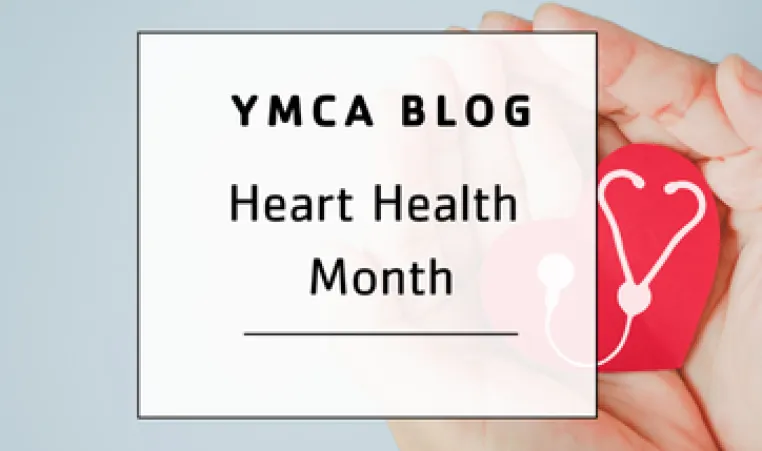
Celebrate American Heart Month at the Lansing YMCA
American Heart Month, celebrated every February, focuses on raising awareness about heart disease and promoting heart health. This month-long observance encourages individuals to take proactive steps in reducing their risk for heart disease, which remains the leading cause of death in the United States. Through education on lifestyle changes such as healthy eating, regular physical activity, and quitting smoking, American Heart Month aims to inspire people to adopt habits that support cardiovascular health. The month also highlights the importance of regular screenings and check-ups to detect conditions like high blood pressure and cholesterol early, which can significantly reduce the risk of heart disease. Here are a few tips for everyone to become heart healthy this February.
- Get Moving: Being physically active every day is not only fun; it can also improve the function of your heart. Plan and schedule opportunities for active play; for example, include a brisk 10-minute trip around the block after meals, or a 10-minute walking break during the day.
- Rest Up: Lack of sleep can be associated with elevated cholesterol and blood pressure. Adults need at least seven (but no more than nine) hours of sleep at night to aid with the prevention of heart disease. Children need 10-12 hours of sleep per night. Develop bedtime routines to assist with falling asleep and staying asleep.
- Revamp your Recipes: Makeover your favorite recipes by reducing the amount of salt and saturated fat and substituting a lower fat food without sacrificing tastes. Read food labels to learn more about what is in the packaged food you buy, and select foods that have less than 1,000 mg of sodium per serving.
- Check your Pressure: Revised blood pressure guidelines from American Heart Association mean that nearly half of all Americans have high blood pressure. Lowering or maintaining normal blood pressure can greatly reduce your risk for heart disease and stroke. Start self-monitoring your blood pressure and know the numbers. Discuss the results with your doctor if needed.
- Quality Time: Spending time together with family or friends is a great way to reduce stress, which is important to heart health. Make homemade valentines for your children’s classmates or even your closest fitness friends at the Y!
Here are several reliable web resources that provide valuable information about heart health:
- American Heart Association (AHA) – The AHA is one of the leading organizations focused on heart health. Their website offers extensive resources on preventing heart disease, understanding risk factors, maintaining a healthy diet, and staying physically active. They also provide tools for managing blood pressure, cholesterol, and stress.
- Centers for Disease Control and Prevention (CDC) – The CDC provides comprehensive information on heart disease prevention, including how to reduce risk factors like high blood pressure, obesity, and smoking. They also offer educational materials on recognizing the signs of heart attacks and strokes, along with tips for maintaining a heart-healthy lifestyle.
- National Heart, Lung, and Blood Institute (NHLBI) – The NHLBI, part of the National Institutes of Health, provides scientific resources and health tips related to heart disease prevention. Their website includes in-depth information on heart conditions, healthy eating, exercise, and tips for managing risk factors like diabetes.
- Mayo Clinic – Mayo Clinic offers a wealth of information about heart disease and heart health. Their site covers prevention, treatment options, lifestyle modifications, and tips for managing cardiovascular conditions, with resources for both patients and caregivers.